- Home
- Piers Anthony
Viscous Circle Page 8
Viscous Circle Read online
Page 8
"You do seem to have a certain tolerance for difficult concepts," Proft remarked diplomatically.
"Yes. I now doubt my amnesia derives from contact with a Kratch. I just encountered one, and foiled it without further complications in my memory."
"You foiled a Kratch?" Proft was astonished.
"He led it into a comet and stuffed it with dust," Cirl said excitedly. "He stopped it from eating me." She made a demure spin. "That is the second time he salvaged me from disbanding."
"This is impressive," Proft admitted. "Your tolerance for violence far exceeds what I have seen in other Bands. What do you think is the proper course in the present crisis?"
"I suspect the advice of the other Spheres is correct. Aliens have opposed each other violently for millennia. Aliens are long hardened to asocial concepts. We Bands must harden ourselves, so that we can somehow abate this devastating thrust. Because if we do not, we may suffer colossal destruction ourselves."
"Intellectually, I can appreciate your point," Proft said. "Yet I cannot support it. I have been long exposed to a variety of attitudes, so have more tolerance than most, but I could never indulge in—hardening. It is contrary to my nature."
"And to that of the great majority of Bands," Rondl agreed. "I admit the notion makes me uneasy too. Yet not as uneasy as the notion of allowing ourselves to be dispossessed."
Even as they conversed, more news flashed across the region. The aliens had landed on the outermost major satellite of Planet Band, Moon Dinge, and were setting off explosions on its surface. The magnetic lines in that vicinity were being distorted, causing Bands to be stranded. There was another wave of disbanding.
"Will they never stop?" Cirl exclaimed, appalled.
"Not until they obtain what they want," Proft replied grimly.
"Which may be the extirpation of the Band species," Rondl added. "How are the Bellatrixians reacting to this? Isn't their enclave near Moon Dinge?"
"They are watching, but remaining quiescent," Proft said. "In this System they abide by our conventions, and do not seek violence, though I believe they are capable of it."
"They certainly are!" Rondl agreed vehemently, tagged by another stray memory. "Once they had a war with Sphere Mirzam, at the area of intersection of their respective Spheres, and they destroyed fifty warships with a single—" He broke off, seeing their confusion and horror, and the memory faded. It didn't seem to make much sense anyway: considering the difficulties of Spherical Regression, how could a major modern engagement take place at the fringes of the Spheres? "Sorry. My recollection caught me by surprise. I think it was fiction, anyway. But I agree that the Bellatrixians are not bellicose here. If the Solarians do not attack their enclave—"
"The Solarians do not seem to know about the enclave," Proft said. "Certainly it is well concealed, in a planetoid in the Dinge orbit, and the Bellatrixians are keeping themselves hidden. They are following our policy of staying out of mischief."
Something about that concept of an alien base concealed in a planetoid intrigued Rondl, but he could not place the notion. Had he been to that enclave in his prior life? Some memories burst full-blown from minor triggers, while others remained below the threshold of recovery despite his best efforts, radiating only tantalizing suggestions of their nature. One impression came through, however; should the Solarians actually attack the Bellatrixian enclave, or even venture near it in their warships, another side of the Bellatrixian nature as Bands knew it would manifest itself. He was certain of this, without any definable reason for his certainty. Perhaps it was that aliens of any species could be extremely touchy about their operations.
Cirl fluctuated again. "You are right, Rondl. We must—must oppose this. Somehow." For her, this reluctant acceptance of the notion of opposition was a considerable shift.
"Is there any—any authority in charge of—of defense?" Rondl asked.
"Authority?" Cirl asked blankly. "Defense?" She had assimilated one alien concept; others remained beyond her.
"These are other Spherical matters," Proft replied. "Bands have no government in the Galactic sense. We are governed solely by convention and our nature."
"Then how can I consult with the Band military—" He broke off, realizing there was no such thing. How could he have thought there was? "Or obtain appointment to whatever organization is supposed to preserve Bands from extinction?" he asked, frustrated.
"You must appoint yourself, and recruit anyone you can," Proft said. "That is how any cause is served. Whoever has the interest expresses it and seeks the support of others with similar interest."
"But I have no authority! Not even memory!"
"These are irrelevant concepts."
"But there has to be some—structure. Some organization. For example, who appointed you to your educational position?"
"I appointed myself," Proft said.
Rondl assimilated this. No central administration at all? "Do you mean that I can just go out and ask Bands to work with me—and they will?"
"Those who so choose. Those who have the will. It depends on how persuasive you are."
"But there are so many things that just had to be organized! Who set up trade relations with the Bellatrixians?"
"Some time ago, when the Bellatrixians came to proffer their trade, a self-formed group labored diligently to grasp the concept, and was so successful that it arranged all the benefits we have derived from that connection, including the construction of these convenient reflective walls for this institution. This was done by one Band who had strong motivation and perception; he is a hero to our memory now. Wonr the Trader."
What would be Rondl's reputation, if he did something like this? Rondl the Warrior? Warmonger? Well, why not?
Yet that seemed foolish vanity, for one with no memory. "I can hardly persuade myself. I seek to join an existing apparatus."
"Apparatus?" Cirl asked.
"You perceive the problem," Proft said. "If you wish, I will invite you to address my classes. Perhaps some individuals will join you."
Another general flash of news came: more Solarian ships had been spied, hurtling toward System Band at sublight velocity. In a few days they would arrive.
"They must have a major Mattermission station set up in this vicinity," Rondl flashed. "It would take hundreds of years for them to move from Sol to Band at sublight velocity."
"You have an amazing knowledge of Spherical space," Proft observed.
"I do, for an amnesiac." But he could not take time to dwell on that at the moment. "I think I had better accept your offer, and talk to your students. Give me time to organize my case, and I will see what can be done."
Rondl and Cirl retired to consult. "I must try to summarize the problem and offer a viable mode of action," he said. "But the problem of definitions seems overwhelming. If I start in defining combat, counterintelligence, and military discipline, I'll never get to the subject."
"Combat? Counterintelligence?" she asked.
"You see? I can no more communicate such concepts to you than you can communicate the correct mode of lovemaking to me."
She assimilated that. "Perhaps I could—"
"You could?" Suddenly this was more interesting.
"If I could find a way to inform you, maybe you could find a way to inform others of your concepts."
"I'm not sure that follows. Still—"
"Sometimes it is easier if others do it."
"But we have to do it!" Suddenly he was not sure they were talking about the same thing. But assuming the subject was love, he did not want to commit himself to making love with some other female, while Cirl—no!
"Like a story of others. Others make war, whatever that is. And love."
Oh. A story, rather than an actual—yes! Rondl realized that she was offering him something similar to what he had sought before: a look at another couple in action. "A story of others," he agreed, relieved. "Call him One, call her Two. What is it they do?"
Cirl considered, still fin
ding this difficult. "One wished to—to express himself to Two, and she was willing to receive the expression. More than willing! So he—"
This was obviously extremely awkward for her to present. It occurred to him that in many Galactic cultures there were things that were socially acceptable in the doing, but not in the describing. Other things could be described, but not done. The gratuitous murder of a member of the same species was an example of the latter, while the detailed processes of procreation—yes. That was the barrier they encountered here. Perhaps he could assist her narration.
"I assume this happened a long time ago," he said. "Both parties have long since disbanded, so there can be no offense in the memory of their history."
"Yes," she agreed gratefully. "A long time ago. They later disbanded after full lives. Maybe their auras merged in the Viscous Circle, and they were sublimely happy for an eternity, and after that, sections of those auras fragmented off to join new Bands, and parts of both are in our own auras—" But that was getting too personal again, causing her to balk. Anything that made the analogy too plain was taboo.
"Parts of earlier auras are in all of us," Rondl said, playing along with the mythology, which he found charming. "But they are spread so thin, as the result of centuries of viscosity and dilution in others, that nothing is recognizable now. All we have is their story, not their spirits."
This enabled Cirl to continue. "It is flashed that when the time came, he—positioned himself so that—" She paused again, her color pulsing with embarrassment. It was amazing what magnetic fluctuations could do to surface hue! "So that his communication beam intersected her—" Yet again she paused, her flashes fuzzing with the supposed shame of the unutterable.
An alien concept came to Rondl now: pornography. What was natural and necessary in life became, through the alchemy of social perception, indescribable. To him, he discovered when he thought about it, the evil lay not so much in the act, or in the depiction of it, as in the twisted attitudes of others who perceived it as unclean. Yet his own attitude had undergone a gradual transformation with experience. There had been a time, on a backward fringe world—but what was he thinking of? The memory evanesced with a fleeting picture of some alien creature with a triple-head extremity. Absolutely meaningless! "Some things are not to be expressed," he flashed. "I think I know of the phenomenon in other cultures."
"True."
"But many aliens are monsters." Triple-headed monsters? "We are not."
"Yes," she agreed. And tried again. "So these two reversed their—"
She could not complete it, but Rondl had caught on. There were, after all, only so many positions two Bands could assume with respect to each other. Position was the key!
He positioned himself so that the output of his lens intersected the output of hers. This was no good for dialogue, as neither could assimilate the message of the other. The lenses placed backward did not communicate. Not intelligibly. But the mode turned out to be excellent for love.
Rondl experienced an exceptional thrill as her flash passed through his reversed lens, and he knew that she was having a similar experience. The lens was dual-purpose, he realized now: one way for intellectual communication, the other way for love.
"Love, love, love!" he broadcast, drawing nearer, orienting more perfectly to the light of Sun Dazzle while she oriented on Sun Eclat. And he felt her response, more wonderful than any intellectual thing could be: Love, love, love! There was communication, but of a nonintellectual, nonobjective nature. Love was not intellect, but feeling. The other side of the lens.
Then Rondl stopped thinking and gave himself up entirely to feeling.
Chapter 6
War
Rondl floated before a class of twenty young Bands. All were attentive to his beam as it flashed across the enclosure and reflected from the curving wall. Could he get his message across?
"This is the story of the ugly Solarian and the three innocent species," he said. He had the nagging feeling he had adapted the story from some other narration, but he could not think what that might be. There was nothing similar he knew of in Band lore. "The Solarian is a gross physical creature with bone-filled extremities, flesh-filled torso, and liquid-filled eyeballs sliding within moist sockets—"
There was a shuddering flash of revulsion among the students. He was overdoing the horror! Rondl cut short the description, not wanting to disturb them too violently. "And an asocial nature. He comes upon a creature of a different species who is bathing in a favorable light while contemplating an esthetic notion. The Solarian desires this particular patch of light, though there is plenty of other light from this sun, so he shoves Creature One aside and takes the place for himself. Now how should Creature One proceed?"
The students were responsive. "He should move to a new spot," a blue one replied. "Unsocial behavior by one party does not justify the same by another party."
There were affirmative flashes: this was the consensus. "So Creature One moves to a new spot," Rondl continued. "But the Solarian concludes that the new spot must be better than the old, so he shoves Creature One again. Now what should One do?"
There was a trace of doubt, but again the answer was to move.
"And the Solarian, determined that Creature One shall have no peace, pursues him there. It seems that Creature One cannot avoid mischief merely by moving, for the Solarian is jealous of any comfort he may possess. What should One do now?"
There was increased doubt. "He is in an untenable situation," a green student concluded. "All he can do is disband." The others, after due consideration, agreed.
"So Creature One is gone," Rondl concluded. "Now the Solarian casts about and comes upon Creature Two, of a different species. He seeks to move Creature Two out, but Two, having noted the futility of moving, refuses to budge. She is an extremely esthetic member of her species, but she is in the way of the Solarian. So he destroys her."
There was a muted flash of horror. Yet not of disbelief, for the current intrusion by the Solarians into Band space was in their awareness.
"What should Two have done?" Rondl inquired, forcing them to tackle this ugly question. When they could not answer, he prompted them: "What could she have done to save herself from destruction?"
Now, reluctantly, they tackled the problem. "She could after all have moved," a white female student flashed.
"But the ugly Solarian would have followed until she had to disband," a yellow one objected.
"So she would have gained nothing by passive resistance," a black one concluded.
"Except perhaps dignity," a gray one put in.
"She needed another alternative," a brown one said.
"Yet if to remain or to remove are both negative—"
They were getting into it, as Rondl had hoped they would. His hypothetical situation was forcing them to struggle with difficult alternatives. Time to give them some help. "I fear Creature Two is finished; she had no viable alternatives, in the face of the Solarian's ugliness. Now the Solarian casts about again with his liquid-filled eyeballs, as his appetite for mischief seems to be insatiable. He spies Creature Three."
"Oh, no!" the white female flashed, already horrified.
Rondl paused, letting them build up morbid curiosity. He was, he realized, a fairly good storyteller; he must have done some of it before. "Now Creature Three has observed the prior two histories. He realizes that it is futile either to move or to remain. In fact, he knows he can do nothing to help himself—alone." He paused again. The key concept was coming up, and it had to be presented properly.
"But two creatures would still have trouble," a bright-red student objected. "First the Solarian would move one, then the other."
"Unless they act together," Rondl suggested.
The class was blank. They did not understand. Bands did not work together, except to help each other briefly or to mate. The ad hoc formations were exceptional. Here was the delicate point.
Time for a separate theme. "When I spun out of cont
rol, another Band helped me to recover. When my friend Cirl fell in the water, I brought her out. There is ample precedent for one Band helping another in need."
"True, but those were special circumstances," a silver student said. "Those were positive acts. It would have been unsocial to allow another to suffer when it could readily be prevented."
"If your friend is attacked by a monster, would it not be positive to help your friend?"
They were muted, pondering that. Some had picked up the flash about Rondl coming to Cirl's rescue when the Kratch attacked her.
"Now Creature Three has enlisted the aid of a friend. Together they are stronger than the single Solarian." Again Rondl paused. He had been building up to this gradually, trying to keep them with him. Would he succeed? "Now there does not have to be asocial behavior. The two creatures simply say to the Solarian: 'If you push one of us, both of us will do the same to you.' Now what do you suppose the Solarian will do?"
They considered. "He will depart," a purple student suggested, a trifle uncertainly.
"Then no one has suffered," Rondl concluded.
Immediately there were objections. "But suppose he does push?" They were as yet unable to express the concept "Attack."
"Then has the Solarian not brought the counterpush upon himself? He knew that various actions would have certain consequences. If he lumbered on his gross bone-filled extremities into a wall, he would come to an abrupt and uncomfortable halt. If he drained the liquid from his eyeballs, he would lose his sight. If he pushed Creature Three, he would be pushed back by two creatures. He had been warned; the choice was his. Creature Three has merely helped set the scene."
But they had trouble with this. "Suppose the Solarian brings another monster, to destroy them both?"
"Then perhaps Creature Three needs to fetch more of his own friends."
"But this would escalate! It would be—" The students could not find the applicable concept.

 Serial
Serial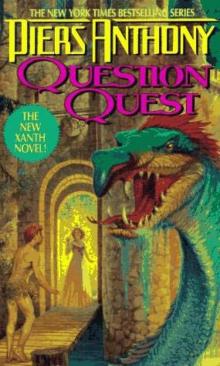 Question Quest
Question Quest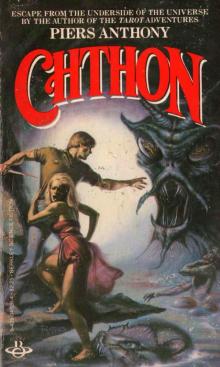 Chthon
Chthon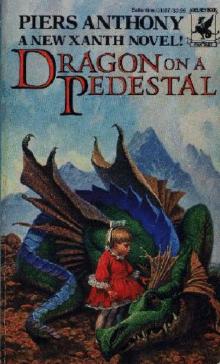 Dragon on a Pedestal
Dragon on a Pedestal E. S. P. Worm
E. S. P. Worm Hope of Earth
Hope of Earth The Series Boxed Set
The Series Boxed Set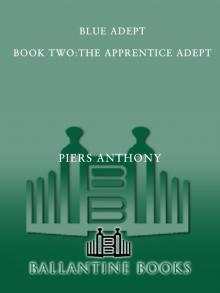 Blue Adept
Blue Adept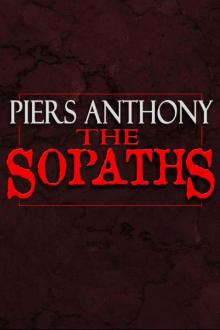 The Sopaths
The Sopaths Beetle Juice
Beetle Juice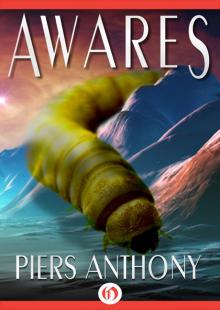 Awares
Awares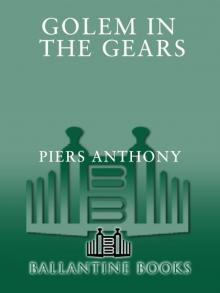 Golem in the Gears
Golem in the Gears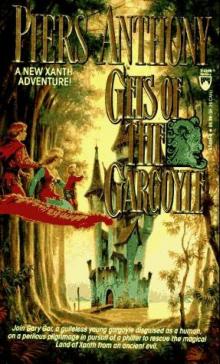 Geis of the Gargoyle
Geis of the Gargoyle Bamboo Bloodbath and Ninja's Revenge
Bamboo Bloodbath and Ninja's Revenge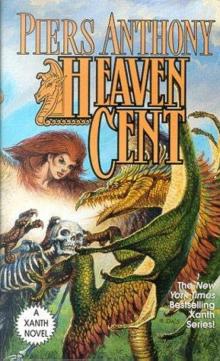 Heaven Cent
Heaven Cent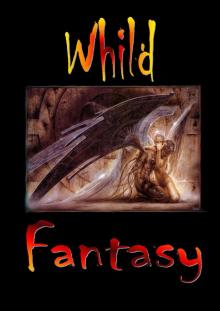 Neq the Sword
Neq the Sword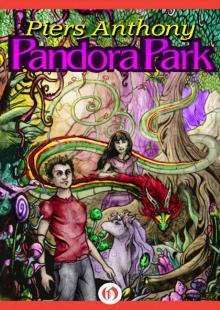 Pandora Park
Pandora Park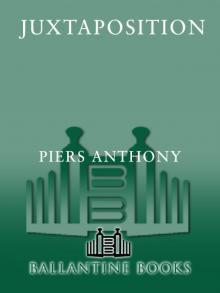 Juxtaposition
Juxtaposition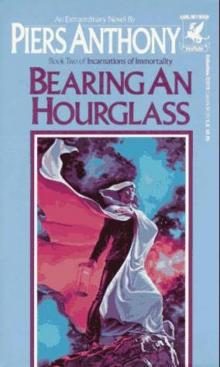 Bearing an Hourglass
Bearing an Hourglass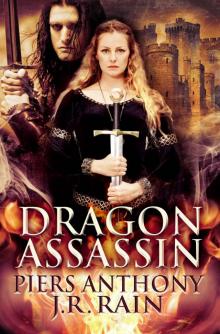 Dragon Assassin
Dragon Assassin Board Stiff
Board Stiff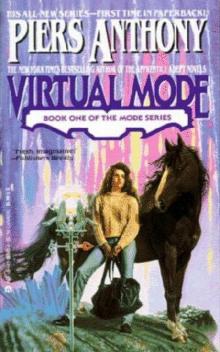 Virtual Mode
Virtual Mode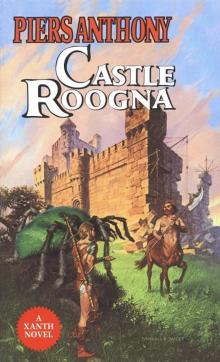 Castle Roogna
Castle Roogna Aliena Too
Aliena Too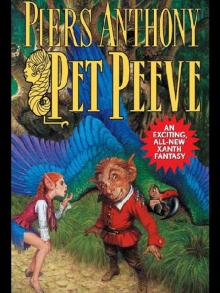 Pet Peeve
Pet Peeve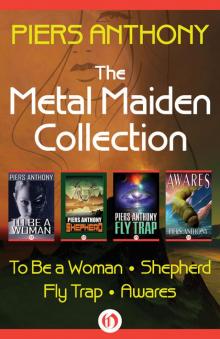 The Metal Maiden Collection
The Metal Maiden Collection Volk
Volk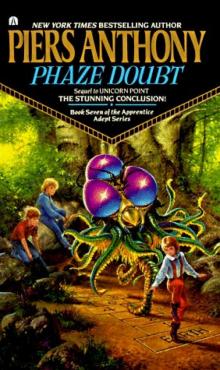 Phaze Doubt
Phaze Doubt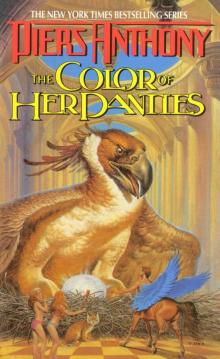 The Color of Her Panties
The Color of Her Panties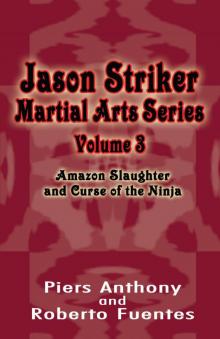 Amazon Slaughter and Curse of the Ninja Piers Anthony
Amazon Slaughter and Curse of the Ninja Piers Anthony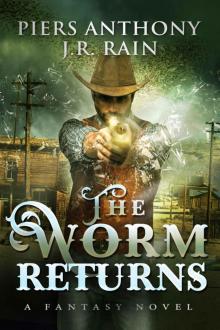 The Worm Returns
The Worm Returns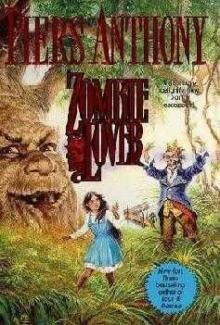 Zombie Lover
Zombie Lover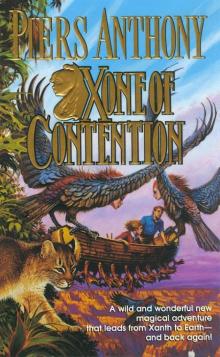 Xone of Contention
Xone of Contention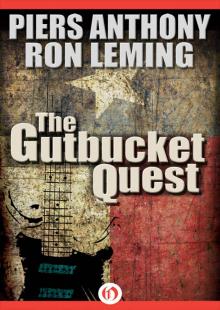 The Gutbucket Quest
The Gutbucket Quest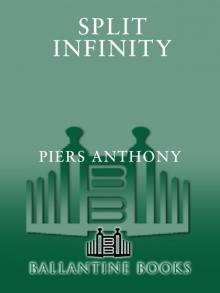 Split Infinity
Split Infinity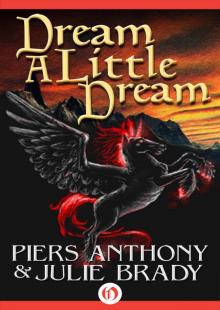 Dream a Little Dream: A Tale of Myth and Moonshine
Dream a Little Dream: A Tale of Myth and Moonshine Balook
Balook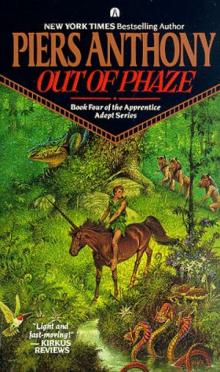 Out of Phaze
Out of Phaze The Secret of Spring
The Secret of Spring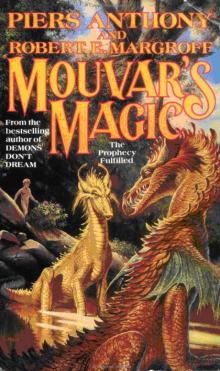 Mouvar's Magic
Mouvar's Magic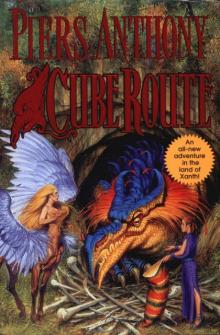 Cube Route
Cube Route Mercenary
Mercenary Total Recall
Total Recall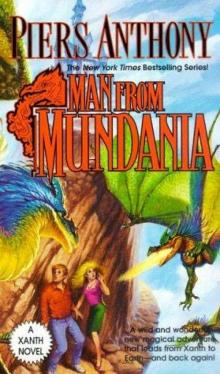 Man From Mundania
Man From Mundania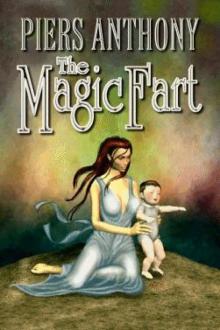 The Magic Fart
The Magic Fart Letters to Jenny
Letters to Jenny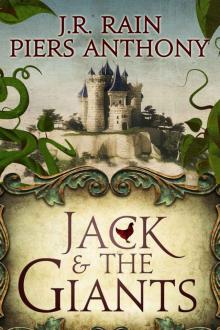 Jack and the Giants
Jack and the Giants Executive
Executive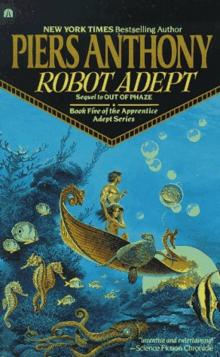 Robot Adept
Robot Adept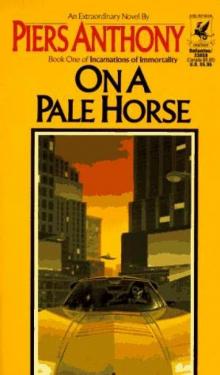 On A Pale Horse
On A Pale Horse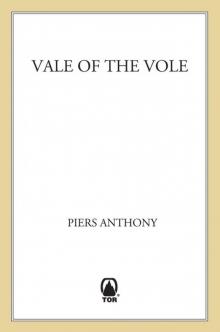 Vale of the Vole
Vale of the Vole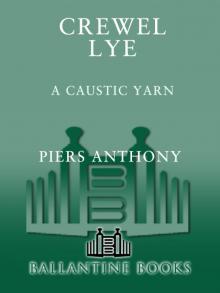 Crewel Lye
Crewel Lye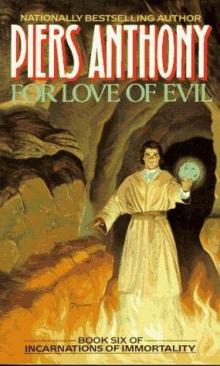 For Love of Evil
For Love of Evil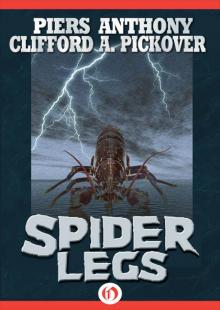 Spider Legs
Spider Legs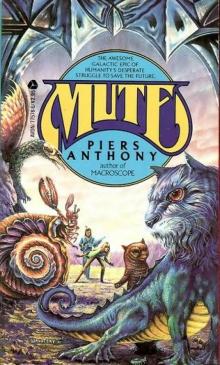 Mute
Mute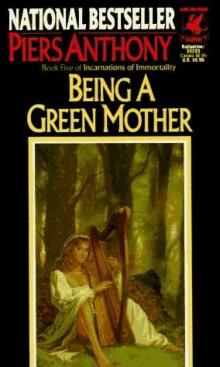 Being a Green Mother
Being a Green Mother Hair Suite
Hair Suite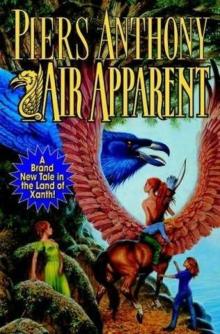 Air Apparent
Air Apparent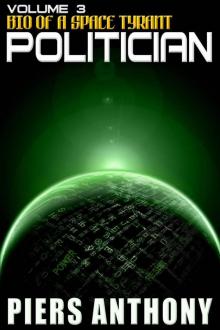 Politician
Politician Aliena
Aliena Phthor
Phthor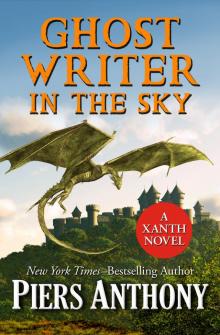 Ghost Writer in the Sky
Ghost Writer in the Sky Pornucopia
Pornucopia Eroma
Eroma Shepherd
Shepherd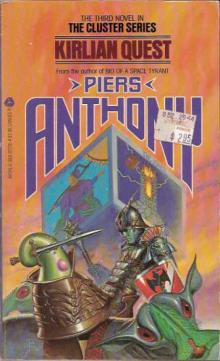 Kirlian Quest
Kirlian Quest Swell Foop
Swell Foop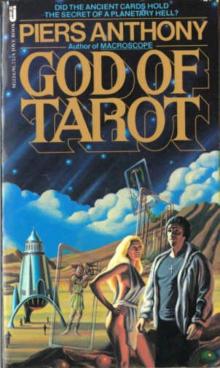 God of Tarot
God of Tarot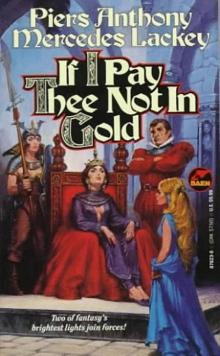 If I Pay Thee Not in Gold
If I Pay Thee Not in Gold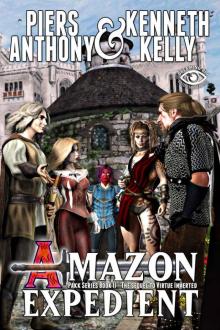 Amazon Expedient
Amazon Expedient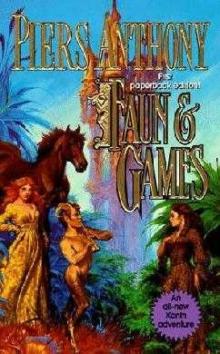 Faun & Games
Faun & Games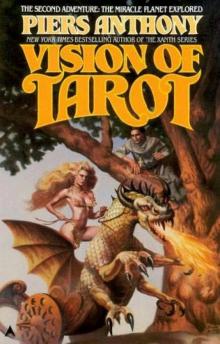 Vision of Tarot
Vision of Tarot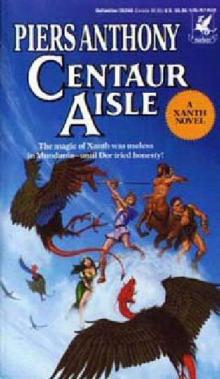 Centaur Aisle
Centaur Aisle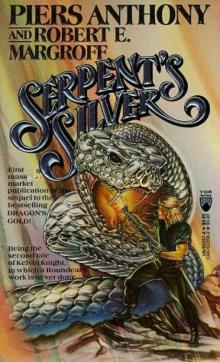 Serpent's Silver
Serpent's Silver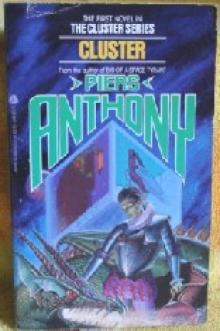 Cluster
Cluster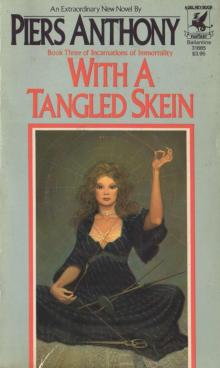 With a Tangled Skein
With a Tangled Skein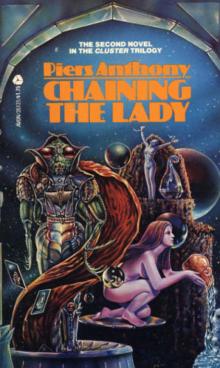 Chaining the Lady
Chaining the Lady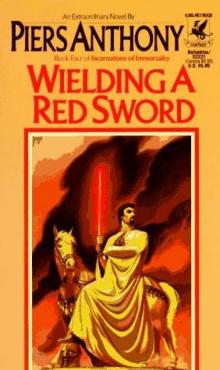 Wielding a Red Sword
Wielding a Red Sword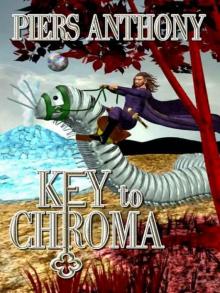 Key to Chroma
Key to Chroma WereWoman
WereWoman Isis Orb
Isis Orb Hair Peace
Hair Peace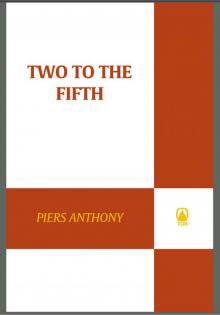 Two to the Fifth
Two to the Fifth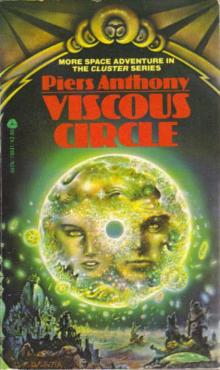 Viscous Circle
Viscous Circle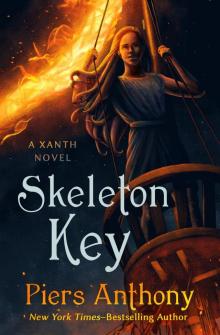 Skeleton Key
Skeleton Key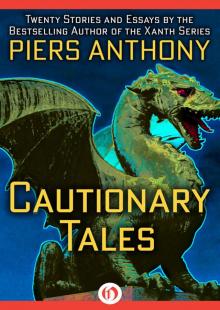 Cautionary Tales
Cautionary Tales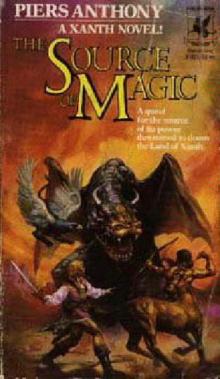 The Source of Magic
The Source of Magic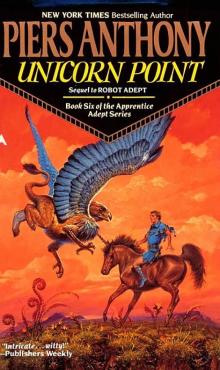 Unicorn Point
Unicorn Point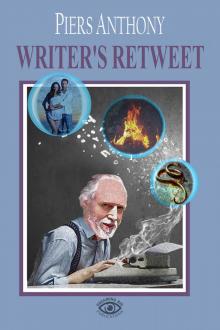 Writer's Retweet
Writer's Retweet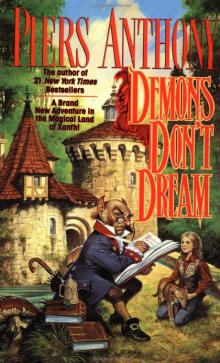 Demons Don't Dream
Demons Don't Dream Ogre, Ogre
Ogre, Ogre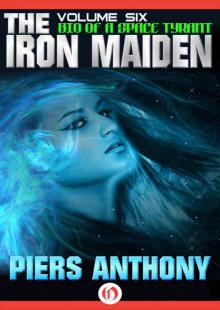 The Iron Maiden
The Iron Maiden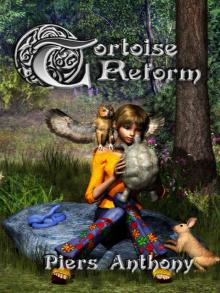 Tortoise Reform
Tortoise Reform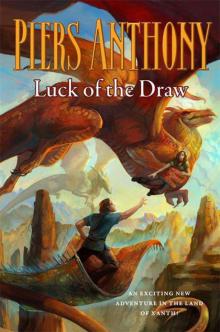 Luck of the Draw
Luck of the Draw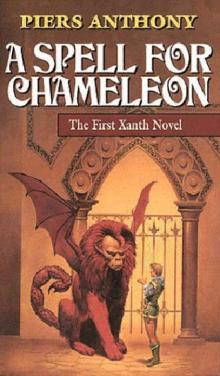 A Spell for Chameleon
A Spell for Chameleon Yon Ill Wind
Yon Ill Wind Currant Events
Currant Events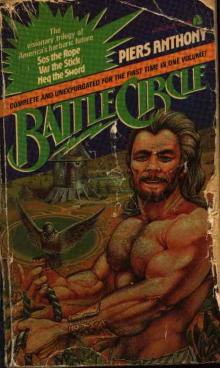 Var the Stick
Var the Stick And Eternity
And Eternity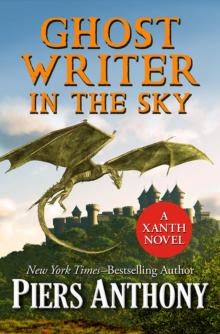 Kiai! & Mistress of Death
Kiai! & Mistress of Death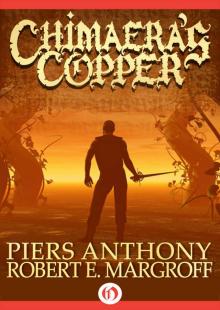 Chimaera's Copper
Chimaera's Copper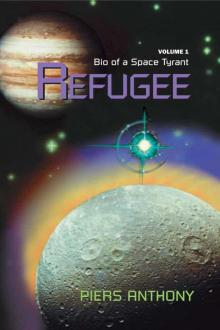 Refugee
Refugee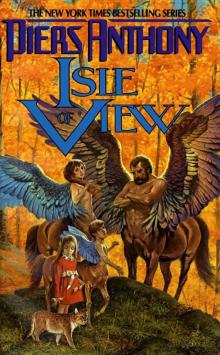 Isle of View
Isle of View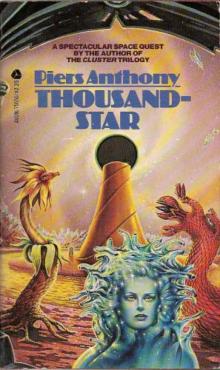 Thousandstar
Thousandstar Mer-Cycle
Mer-Cycle Service Goat
Service Goat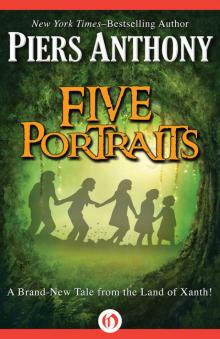 Five Portraits
Five Portraits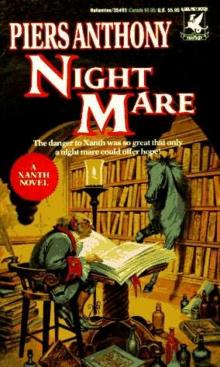 Night Mare
Night Mare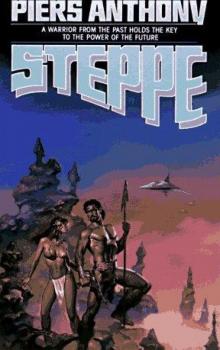 Steppe
Steppe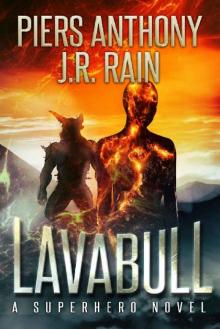 Lavabull
Lavabull Well-Tempered Clavicle
Well-Tempered Clavicle Aladdin Relighted
Aladdin Relighted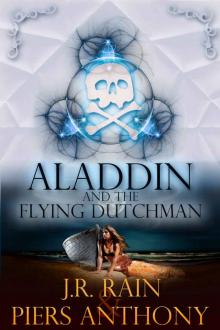 Aladdin and the Flying Dutchman
Aladdin and the Flying Dutchman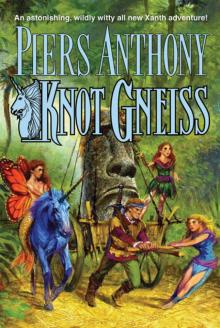 Knot Gneiss
Knot Gneiss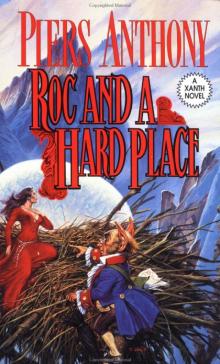 Roc and a Hard Place
Roc and a Hard Place Aladdin Sins Bad
Aladdin Sins Bad Flytrap
Flytrap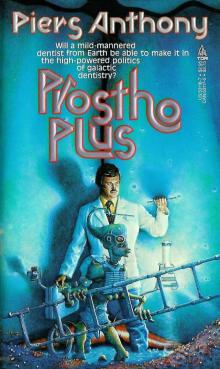 Prostho Plus
Prostho Plus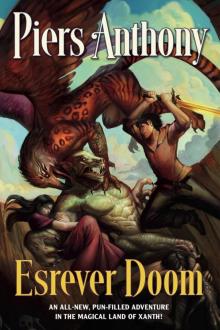 Esrever Doom
Esrever Doom Hair Power
Hair Power The Journey
The Journey Virtue Inverted
Virtue Inverted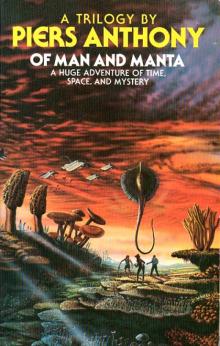 Of Man and Manta Omnibus
Of Man and Manta Omnibus Trail Mix: Amoeba
Trail Mix: Amoeba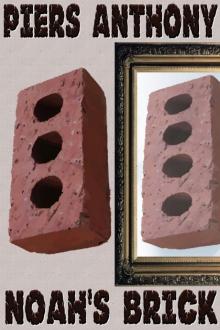 Noah's Brick
Noah's Brick Odd Exam
Odd Exam Magenta Salvation
Magenta Salvation Jest Right
Jest Right Fire Sail
Fire Sail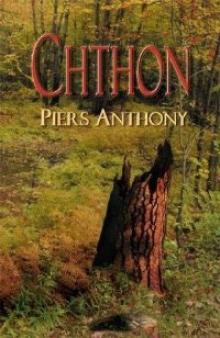 Chthon a-1
Chthon a-1 Amoeba
Amoeba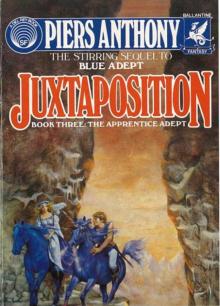 Juxtaposition aa-3
Juxtaposition aa-3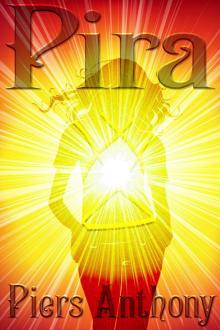 Pira
Pira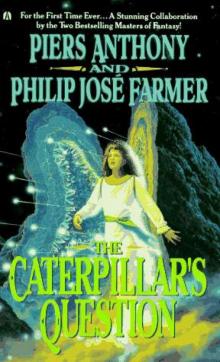 THE CATERPILLARS QUESTION
THE CATERPILLARS QUESTION What Fears Become: An Anthology from The Horror Zine
What Fears Become: An Anthology from The Horror Zine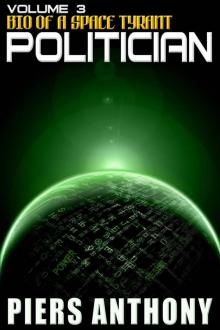 Bio of a Space Tyrant Vol. 3. Politician
Bio of a Space Tyrant Vol. 3. Politician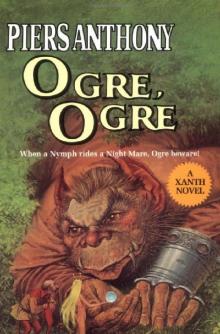 Ogre Ogre x-5
Ogre Ogre x-5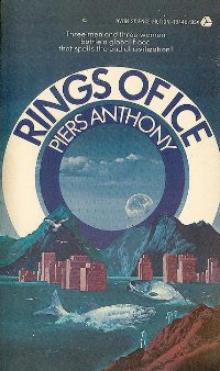 Rings of Ice
Rings of Ice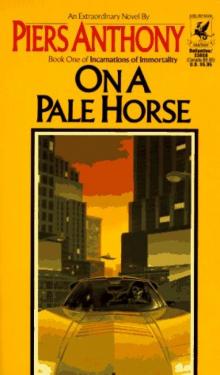 On a Pale Horse ioi-1
On a Pale Horse ioi-1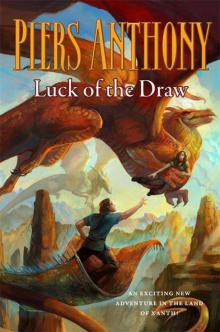 Luck of the Draw (Xanth)
Luck of the Draw (Xanth)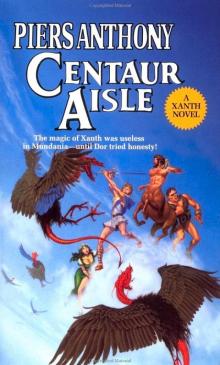 Centaur Aisle x-4
Centaur Aisle x-4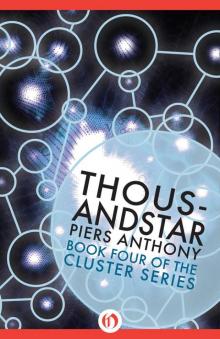 Thousandstar (#4 of the Cluster series)
Thousandstar (#4 of the Cluster series)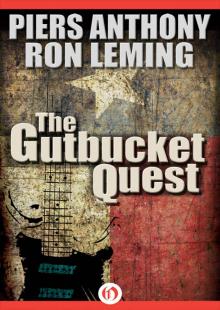 Gutbucket Quest
Gutbucket Quest Isle of Woman (Geodyssey)
Isle of Woman (Geodyssey)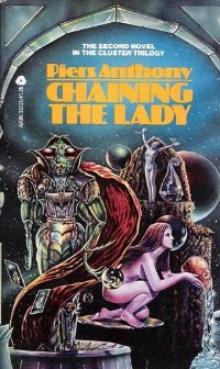 Chaining the Lady c-2
Chaining the Lady c-2 To Be a Woman
To Be a Woman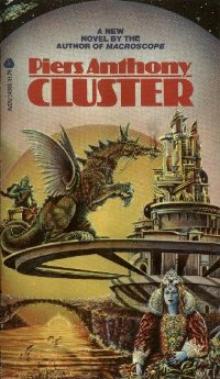 Cluster c-1
Cluster c-1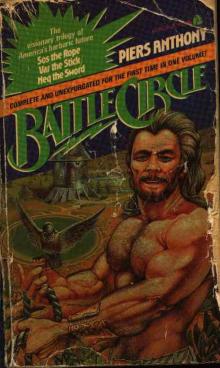 Battle Circle 2 - Var the Stick
Battle Circle 2 - Var the Stick Mercenary (Bio of a Space Tyrant Book 2)
Mercenary (Bio of a Space Tyrant Book 2)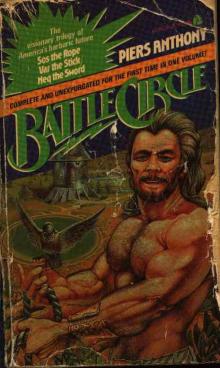 Battle Circle 1 - Sos the Rope
Battle Circle 1 - Sos the Rope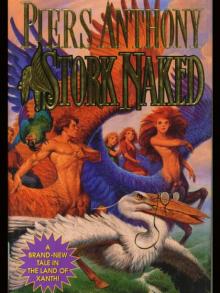 Xanth 30 - Stork Naked
Xanth 30 - Stork Naked Secret of Spring
Secret of Spring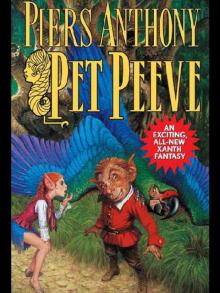 Xanth 29 - Pet Peeve
Xanth 29 - Pet Peeve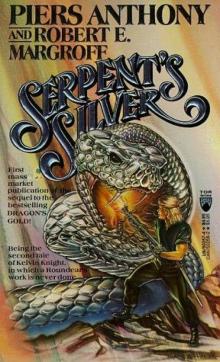 Serpents's Silver
Serpents's Silver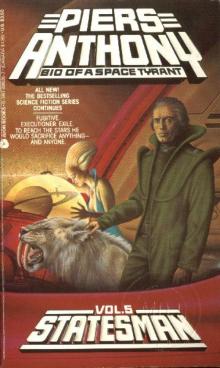 Statesman by Piers Anthony
Statesman by Piers Anthony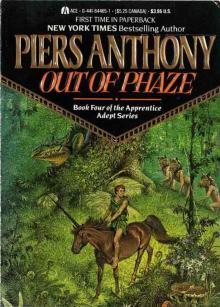 Out of Phaze aa-4
Out of Phaze aa-4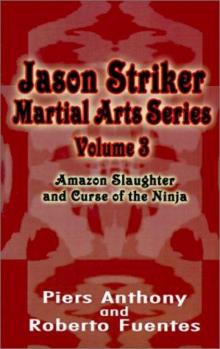 Amazon Slaughter & Curse of the Ninja
Amazon Slaughter & Curse of the Ninja